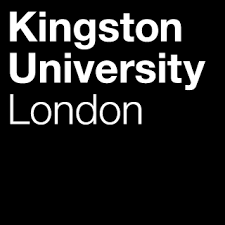Reflexive Leadership

06 May 2026 (Available)
Apply by: 08 Apr 2026
New Session
06 May 2026 (On Campus), 20 May 2026 (On Campus), 03 Jun 2026 (On Campus), 17 Jun 2026 (On Campus), 01 Jul 2026 (On Campus)
Course overview
The module can be taken as a free-standing module or as an optional module within the MSc in Clinical Leadership and does not require students to have previously studied leadership and management. It is aimed at healthcare professionals involved in leadership, service development/practice development and/or people management.
This module provides students with the opportunity to place a critical lens on the production of leadership identities, going beyond the individualistic leader to enable insights into the relational processes through which leadership is performed. Students will be invited to focus reflexively on the details of their interactions at work, applying a psychosocial approach to consider the subjective, the personal, and the interpersonal aspects of organisational behaviour. The module explores ideas and beliefs, about how people talk about leadership and the stories and narratives that they construct.
Aims
• To enable students to become more self-aware, empathetic, and insightful leaders.
• To develop students’ ability to manage and lead reflexively, with an improved understanding of the causes of patterns of behaviour in the workplace.
• To enable students to critically apply theories of communication to explore the interplay between self-leadership, the team and the organization.
• To provide students with the knowledge and skills to critically analyse the origins of power and its relationship to inclusion/exclusion in the workplace.
Students will be invited to focus reflexively on the details of their interactions at work to gain insights into how norms, routines, and cultures emerge in organisations and as a means of generating alternative possibilities to how they might approach their daily practice. Students will be encouraged to share their experiences to critically evaluate the following concepts and influencing factors:
• Social interaction and power
o Power as the activity of enabling and constraining others
o Social norms and values
• Communication and understanding
o Models of communication
o Misunderstanding
• Conflict, emotion, and challenging relationships
o Gossip, bullying, scapegoating and stigmatisation
o Inclusion/exclusion processes
• Restorative Practice
o Action learning sets
o Coaching
o Resilience
o Reflective writing
Assessment
Essay (4000 words)
Accredited by




Why choose Kingston?
Kingston University is one of the leading providers of social work and social care education within London and the UK
We work with leading NHS Trusts across SE England
Every member of the teaching staff has substantial practice experience in social work. In addition, many are actively involved in social work research, presenting regularly at conferences and publishing in books and journals
We are No.1 in London and No.2 in the UK for Mental Health Nursing and No.5 in the UK for Children's Nursing (Guardian University Guide 2023)

Course details
Downloads
Prerequisites
Funding
£2,345.00
Self-funding students will need to make a one-off payment for the module via our secure payment portal before the online enrolment process.

Make an enquiry
Make an enquiry
